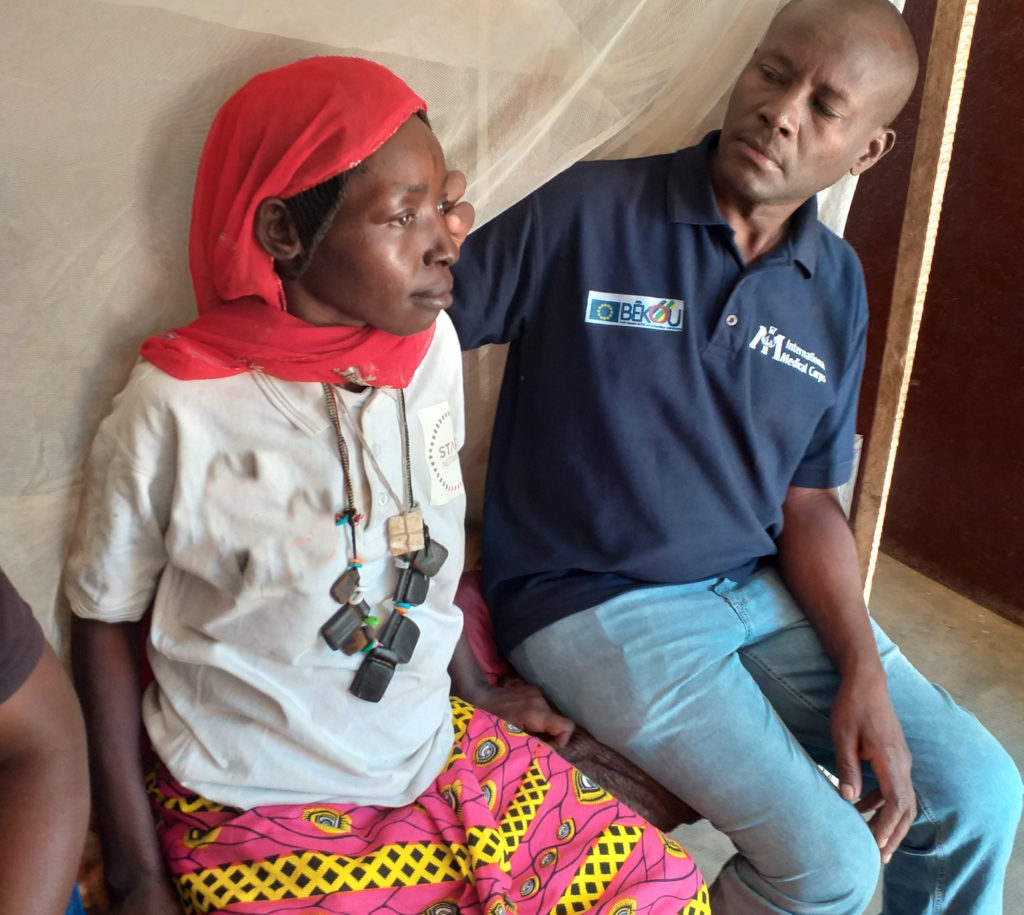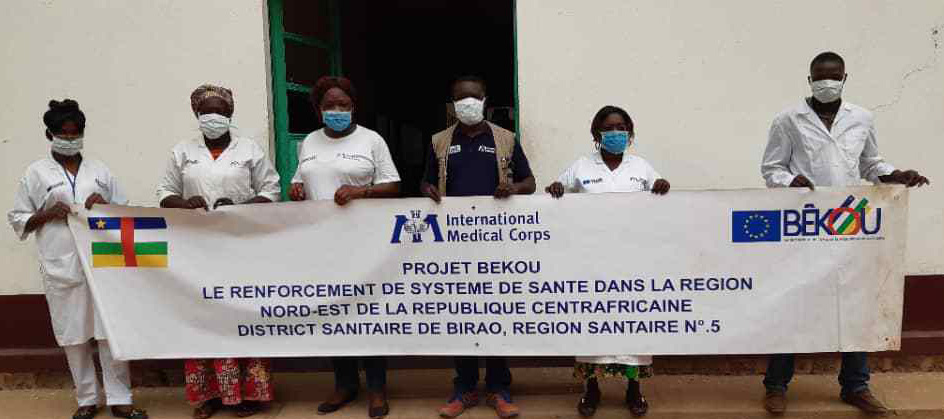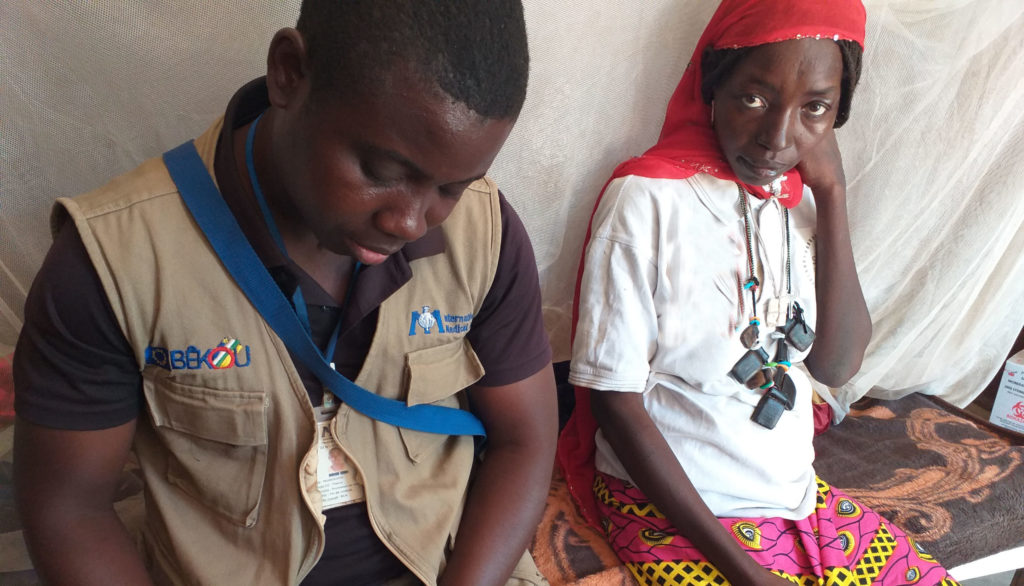Political instability has been part of everyday life in the Central African Republic (CAR) for decades. But since conflict broke out in 2013, life has been defined by war. Despite the signing of a peace agreement in February 2019, conflict continues to flare up, often unpredictably and near civilian centers. Today, one in four Central Africans is either internally displaced or has sought safety abroad as a refugee. Perhaps starker still, 2.6 million people—more than half of the population—rely on humanitarian assistance to survive.
In times of crisis, gender inequalities are exacerbated—and access to maternal health services is sadly not exempt. CAR has among the highest maternal mortality rates in the world, with only 30 percent of births assisted by a skilled birth attendant—one of the lowest rates in the world, according to the World Health Organisation (WHO). The majority of CAR’s population lives in rural areas where access to healthcare is dangerously restricted, rendering procedures that should be routine, such as childbirth, potentially fatal.
Zihera’s Story
What is it like to become pregnant, have little or no access to prenatal care, lose your baby in the final trimester, then suffer complications so severe that your life is in danger? This scenario isn’t uncommon or exaggerated. Instead, risks to mother and baby, often life-threatening, are unacceptably common in CAR.

In December 2019, when International Medical Corps’ Nutrition Team in Vakaga—a district in northern CAR—was carrying out a screening in a village called Ndiffa, a community member told the team about Zihera, a 39-year-old woman who had lost her baby during an unsuccessful home delivery a few days earlier. She was now unconscious and bleeding heavily.
With Zihera in critical condition, the team called an ambulance that immediately transferred her to Tiringoulou, a regional health center supported by International Medical Corps. Once there, it became clear that Zihera—who had suffered a ruptured uterus—needed surgery to save her life, so an emergency laparoscopy was performed. Following this, the team transferred Zihera to a bigger hospital in Birao, supported by International Medical Corps, for further care. There, among other things, she was treated for anemia and made a full recovery.

A delay in recognizing dangerous signs such as excessive bleeding, and not seeking medical assistance in time during the unsuccessful home delivery almost cost Zihera her life. Tragically, she lost the baby—but if she hadn’t been transferred to Tiringoulou Health Centre, chances are that she would have lost her life as well.
Once she was well enough to leave the hospital, International Medical Corps’ Community Health Workers (CHWs) continued to support Zihera. Among other things, she received family-planning assistance—a crucial component of her care, since another pregnancy too soon would endanger her health. In addition, the CHWs put together a plan—including delivery and antenatal care—to help her if she became pregnant again once it was safe to do so.
Getting to Zero
Zihera’s story is sadly not uncommon, but instead illustrates the risks associated with pregnancy and childbirth in CAR. This is why International Medical Corps has been supporting the country’s Ministry of Health to reduce maternal and infant mortality in two health districts—Vakaga and neighboring Haute-Kotto—in northern CAR.
In 2019, the maternal mortality rate in two of the hospitals that we support was reduced to zero—a hopeful trend that continues even now. This result tells us that, with time—as well as commitment and trust from the communities that we serve—it is possible to achieve real, lasting change, even in one of the most dangerous places in the world to be pregnant and give birth.
International Medical Corps has been providing medical relief in CAR since 2007. Thanks to generous funding from Bêkou, the EU Trust Fund for the Central African Republic, we also provide healthcare, nutrition, protection and other assistance in Vakaga and Haute Kotto, two neighboring regions in northern CAR, hard-hit by the conflict. Phase III, which started in July 2018, has already helped more than 220,000 people.
